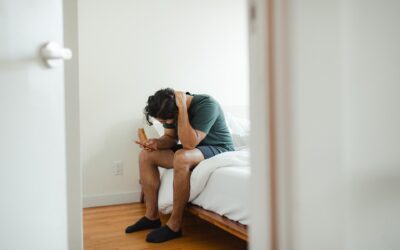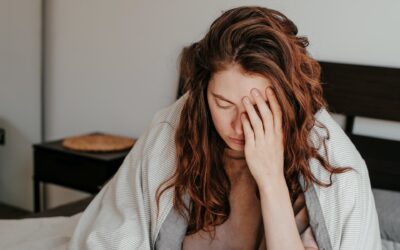In today's fast-paced world, stress and anxiety have become increasingly common, impacting the lives of many individuals and significantly affecting their mental and emotional well-being. Chronic...
Blog: Anti-Anxiety
Alleviating Stress and Anxiety with QEStrong’s Quantum Energy Products
In an increasingly fast-paced and complex world, stress and anxiety have become twin specters that loom over many of us, often affecting our well-being, productivity, and overall quality of life....
Manage Stress and Anxiety Naturally with QEstrong’s Quantum Energy Solutions
In today's fast-paced world, stress and anxiety have become common challenges that can significantly impact our overall health and well-being. Chronic stress and anxiety can lead to physical,...
Relieve Stress & Anxiety Naturally using Quantum Energy Solutions by QEStrong
In today's fast-paced, highly demanding world, stress and anxiety are prevalent and impact various aspects of our lives, including work, relationships, and even physical health. While medication and...
Manage Stress and Anxiety Effectively with Quantum Energy Solutions by Qestrong
In today's fast-paced world, stress and anxiety have become unwelcome companions for many people, making it crucial to find effective strategies to manage these mental health hurdles. Stress and...
Combat Stress and Anxiety with QEStrong’s Bioenergetic Calm Patches
In today's fast-paced, demanding world, stress and anxiety can often feel overwhelming. Finding effective, natural solutions to manage these emotions is vital for achieving balance, maintaining...
Coping with Anxiety: Essential Tips for Managing Symptoms
Anxiety is a common mental health condition that affects millions of people worldwide. It can manifest in different ways, such as excessive worry, restlessness, irritability, and difficulty...
The Consequences of Ignoring Anxiety: What You Need to Know
Anxiety is a normal human response to stress, and everyone experiences it at varying degrees. While it can be helpful in some situations by enhancing focus and alertness, chronic and untreated...
The Surprising Link Between Sleep Deprivation and Anxiety
Sleep is one of the most critical factors that affect our overall well-being. During sleep, our body can rest and recharge for the next day. A good night’s sleep is vital for a healthy mind and...
A List of Factors That Can Worsen Your Allergy Symptoms
Are you someone who is extra sensitive to certain things like pollen, pet dander, or certain types of food? Do your allergy symptoms seem to be getting worse no matter what you do? You are not...
















